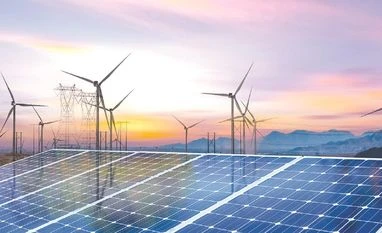The Asian Development Bank (ADB) has approved a $434.25 million (about Rs 3,600 crore) loan to increase renewable energy capacity and improve energy security in Assam.
Addressing the renewable energy capacity shortage in Assam is crucial to meet growing demand and reduce dependency on fossil fuels, ADB said in a statement on Friday.
This project will help Assam develop a renewable energy road map and increase its solar energy capacity to achieve its target of 3,000 megawatts (MW) by 2030, it said.
The Assam Solar Project will construct a grid-connected solar photovoltaic (PV) facility in Karbi Anglong district with a capacity of 500 MW, it said, adding the project will support the development of a grid-connected battery energy storage system to ensure grid stability and meet peak power demand.
This storage system will be established through a joint venture between the Assam Power Distribution Company Limited (APDCL) and the Oil and Natural Gas Corporation Ltd. Tripura Power Company Ltd, it said.
ADB will help attract private sector investment into renewable energy by strengthening the state's public'?private partnership (PPP) framework and build its capacity to develop and manage renewable energy PPP projects, it said.
More From This Section
The project will help establish a PPP agreement to develop an additional 250 MW solar PV facility in the Karbi Anglong district, it added.
The project will improve the distribution of electricity around the solar PV facility and neighboring rural areas by replacing overhead power distribution lines with aerial covered conductor cable and installing new distribution transformers, the statement said.
ADB will provide an additional $1 million technical assistance grant from its Clean Energy Fund under the Clean Energy Financing Partnership Facility to support project implementation, awareness-raising, and capacity building of the APDCL and surrounding communities, it said.
ADB is committed to achieving a prosperous, inclusive, resilient, and sustainable Asia and the Pacific, while sustaining its efforts to eradicate extreme poverty. Established in 1966, it is owned by 69 members -- 49 from the region.
)